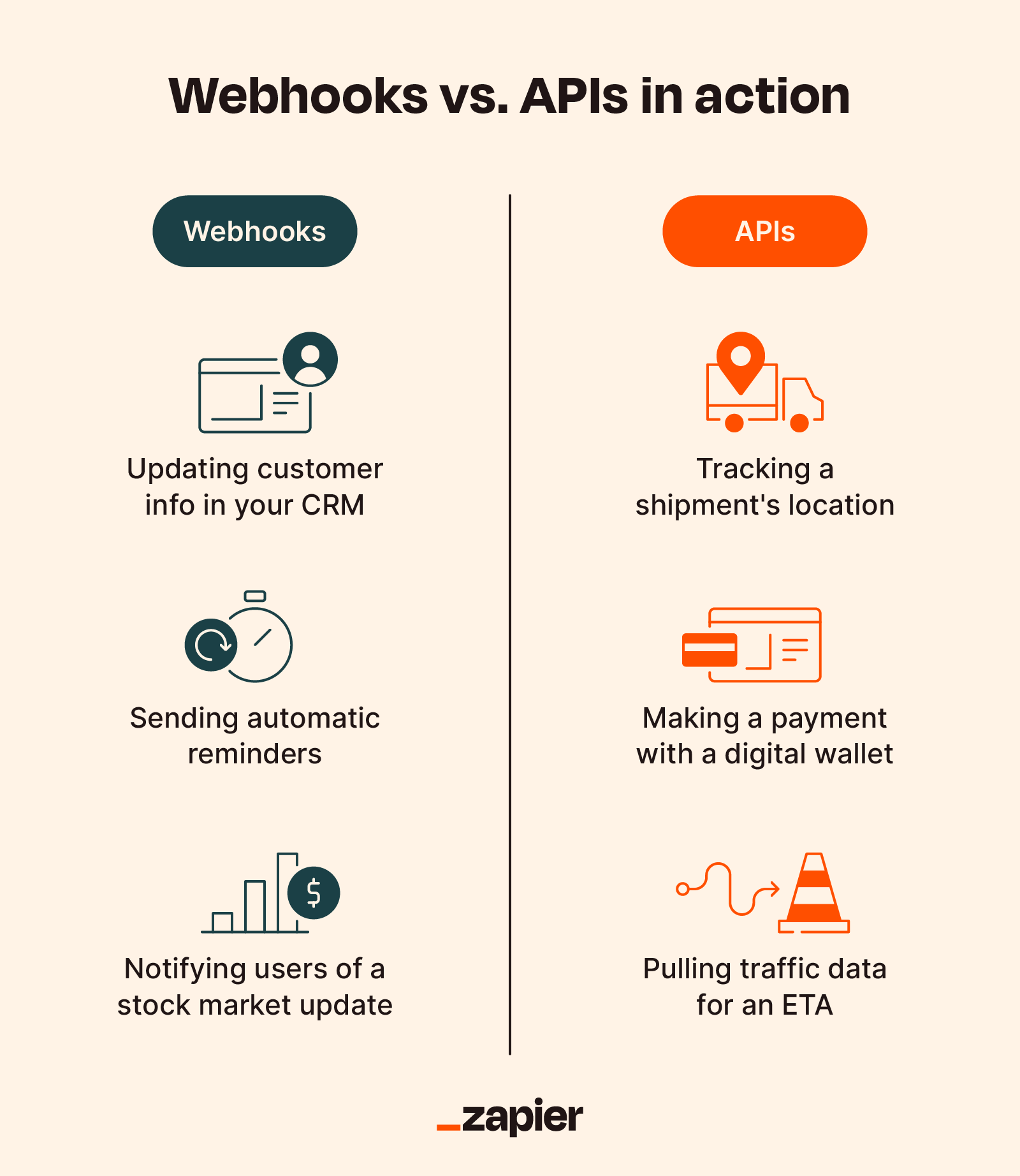Downsides of Webhooks
1. Webhooks are unreliable and insecure as they depend on the availability and performance of the publisher and the subscriber. If either of them is offline, overloaded, or compromised, the webhook may fail, be delayed, or be intercepted.
2. Webhooks do not have as much functionality as an API integration. They do not enable pushing, deleting, or updating data in another system. They only enable receiving data.
3. Working with webhooks exposes an HTTP endpoint that can be called from any actor on your server, which can be unsafe without appropriate security measures in place.
4. Webhooks require integration and configuration efforts, which may be time-consuming and complex.
5. There may be limitations on the number of webhooks that can be set up or the frequency at which they can be triggered.
6. Webhooks may not provide built-in error handling mechanisms, requiring additional error handling implementation in the receiving system.
7. Debugging and troubleshooting webhook issues can be challenging, especially if there is no detailed logging or error reporting.
8. Webhooks may introduce dependencies on external systems, making the overall system more complex and less reliable.
9. Webhook payloads may not always contain all the necessary information, requiring additional API calls to fetch related data.
10. Webhooks may not be suitable for real-time or high-frequency data transfer needs, as the reliability and performance of webhooks can vary based on network conditions and server load.
Key Questions About Webhooks:
1. What are the downsides of webhooks? (Answered above)
2. Why should I not use webhooks? (Answered above)
3. Are webhooks safe to use? (Answered above)
4. Are webhooks useful? (Answered above)
5. Is webhook outdated? (Answered above)
6. Are webhooks better than API? (Answered above)
7. Are webhooks deprecated? (Answered above)
8. Is a webhook a secret? (Answered above)
9. Which is better, webhook or API? (Answered above)
Note: The above questions are solely based on the given text and the answers are as detailed as possible within the character limit.

What are the downsides of webhooks
Webhooks also have some drawbacks for real-time data delivery. First, they are unreliable and insecure, as they depend on the availability and performance of the publisher and the subscriber. If either of them is offline, overloaded, or compromised, the webhook may fail, be delayed, or be intercepted.
Why not to use webhooks
The main reason not to use a webhook is that they do not have as much functionality as an API integration. Webhooks do not enable pushing, deleting or updating data in another system. They only enable receiving data.
Cached
Are webhooks safe to use
Working with webhooks exposes an HTTP endpoint that can be called from any actor on your server. Without appropriate measures, this could be extremely unsafe.
Cached
Are webhooks useful
Webhooks are an important part of the web and are only becoming more popular. They allow your applications to transfer data instantly and seamlessly to one another. And while webhooks are similar to APIs, they both play different roles, each with its own unique use case.
Is webhook outdated
This integration has been deprecated. New syncs cannot be created, but existing syncs will continue to run. This destination has been deprecated as of September 1, 2022.
Are webhooks better than API
Conclusion. Both APIs and webhooks have different use cases, but if you want to transfer data between two services, webhooks are the way to go. However, an API should be used if your platform or application demands frequent data changes.
Are webhooks deprecated
The legacy Incoming Webhook is deprecated and not recommended.
Is a webhook a secret
Secret. Setting a webhook secret allows you to ensure that POST requests sent to the payload URL are from GitHub. When you set a secret, you'll receive the X-Hub-Signature and X-Hub-Signature-256 headers in the webhook POST request.
Which is better webhook or API
APIs are manual—they need to be asked to pull or modify data. Webhooks automatically send data in response to a specific event, without any request from another software. Webhooks are a subset of APIs and are therefore far more limited than APIs—they can only send information. APIs are more versatile.
What can someone do with a webhook
Webhooks typically are used to connect two different applications. When an event happens on the trigger application, it serializes data about that event and sends it to a webhook URL from the action application—the one you want to do something based on the data from the first application.